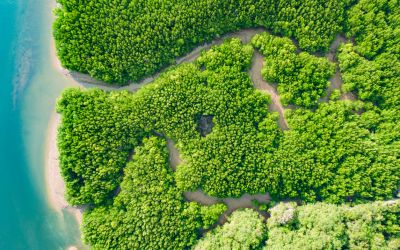Ørsted aims for net-positive biodiversity impact from new projects commissioned from 2030
Ørsted has set the ambition to deliver a net-positive biodiversity impact from all new renewable energy projects that are commissioned from 2030 at the latest.

Ørsted has set the ambition to deliver a net-positive biodiversity impact from all new renewable energy projects that are commissioned from 2030 at the latest.
Mads Nipper, CEO of Ørsted, said: "Over the coming decades, the deployment of renewable energy must accelerate significantly to speed up the transformation of the world's energy systems to renewable energy and halt global warming. The build-out of green energy must go hand-in-hand with protection of natural habitats and wildlife, including in our oceans."
He added: "That's why we've decided to build in the criterion that all new projects that we start to develop from now on must have a net-positive biodiversity impact. This means all renewable energy projects commissioned by Ørsted will have a net-positive impact on biodiversity by 2030 at the latest. By building a net-positive contribution to biodiversity into our future projects, we want to do good for the planet and strengthen our competitive advantage as one of the world's largest renewable energy developers."
When developing new projects, Ørsted will systematically implement initiatives that ensure an overall net-positive contribution to natural ecosystems, habitats, and species in and around the company's new renewable energy projects in offshore wind, onshore wind, solar PV and energy storage, and renewable hydrogen. Ørsted will also seek to identify initiatives that can have a positive impact on biodiversity before 2030.
Ørsted works to avoid, mitigate, and address the potential biodiversity impact of its projects, with one of the renewable energy industry's most experienced in-house teams of environment specialists. Ørsted has delivered initiatives such as artificial reefs to support Atlantic cod at Borssele 1 & 2 in the Netherlands; monitoring of crustacean habitats at Westermost Rough in the UK; and a programme to protect and conserve the North Atlantic right whale. Still, there will be new challenges to solve when delivering on the new ambition.
One of the challenges to be solved is the lack of industry-wide standardised approaches to measure biodiversity impact. Especially working in offshore environments, which are more dynamic and variable due to the forces of oceans, it is more complex to establish a baseline and measure the change.
Ørsted has therefore joined the Science Based Targets Network Corporate Engagement Program to help develop nature science-based targets and advance long-term development of tools and guidance to measure its impact and dependencies on biodiversity, land, water, and oceans.
According to scientists, reducing carbon emissions is a powerful way to combat climate change and its impact on species and ecosystems. As one of the world's largest renewable energy companies and with carbon-reduction targets aligned with the 1.5°C pathway, Ørsted aims to address both the climate and biodiversity crisis through a sustainable build-out of green energy at scale.
Find out more here.






